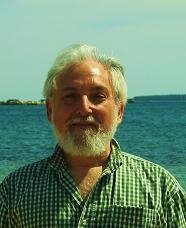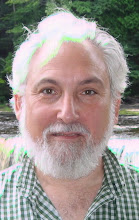What follows is an expanded answer I gave to an inquirer who asked about "contemporary revelations" such as Douglas Neil Walsh's Conversations with God and and a related text, even if not claimed as "revelation," Rhonda Byrne's The Secret. Here is how I answered:
Dear A:
Thanks for finding the heart to ask your heart's questions.
For over a decade a wonderful woman named Olivia, my former mother-in-law introduced me to the whole family of New-Thought School of Christianity (Christian Science, Unity School, Science of Mind, and A Course in Miracles). I believe, had she lived past her 90+ years until now, she would have been a vital advocate of the best-selling The Secret: The Law of Attraction. People ask me often about the Secret, as if I were some kid of expert. Although I'm "Mistra Know-it-all," I finally have formulated a simple policy statement for myself and I invite you to consider it as a question, might this perspective serve you:
The "Law of Attraction" may be a powerful formula for creativity, but it is certainly not an ontology (theory of being) nor an philosophy of ethics. The book is filled with some admirable ideas and practices, especially "attraction" and "gratitude." And at that level I can admire, acknowledge and practice its principles. Even Confucius (who would have laughed off this "Secret" product," would have favored the practice of attractiveness and gratitude that spreads and results from performing social rituals respectfully and correctly as a way of building a society. But that's exactly as far as I can and would go and I see a major problem with how the theory is misapplied and used as a tool of abuse -- abuse of self and abuse of others.
Rollo May wrote in one of his books (I think the book is The Courage to Be, and I think the quote is on p. 108) that the Maharishi Mahesh Yogi's Transcendental Meditation movement was promoting a false vision of creativity by promoting relaxation as the seed-bed of creativity, when in fact the creation of art involves the agon the struggle, the contest, the battle. Becker is brilliantly clear on this in many ways and places in his work especially in his treatment of "moiety" (complementary pairs and oppositions (Escape From Evil, p. 10)And yes, sometimes, some artists receive entire inspiratoins at a clip. We know this of Jalaluddin Rumi, Ibn 'Arabi and J.K. Rowling.
Neither Prometheus, Ithicus, nor even Hermes advanced by using "The Secret Law of Attraction (and Gratitude)." They thought hard, worked hard, sometimes tricked and treated their way up and out, but certainly used nothing like the Law of Attraction.
Although in the following quote Becker speaks of evangelism, I think one could substitute other terms, including "the law of attraction:" "...which still seems to offer a way to overcome exaggerated fears of life and death by heroic dedication to special purity and worthiness." (Escape From Evil, p. 164). Remember that Becker taught that it is our very attempts to overcome evil that create more evil. (See Escape, 169-171) So then what do we hope to produce by ignoring evil or ascribing its manifestation to the fault of the victim?
For example, notice all the great prophets and saints suffered. Dr. Larry Dossey who writes books on the power of prayer in healing opens his book Healing Words with a descriptive list of saints who died from diseases: Sri Ramakrishna, Ramana Maharshi are among them. I would add St. Therese de Liseaux, who died at 24 of awefully painful TB, yet had de facto used "The Secret" as she returned the meanness of her mother superior with such fervent love that one day the mother superior in exasperation asked her how she could always act so cheerful. This 15-year old girl certainly "attracted" to herself the place in the convent she so desperately desired that she went to Rome and broke all protocols by talking to the Pope face to face!
23 years ago I was in a terrible auto accident and miraculously survived with no external evidence but a skin graft on the underside of my left forearm. But on the day of the event, a woman had driven her car right at me, into me, knocked me down, and dragged me underneath it. Yes, it was an accident. In fact it's a common auto-accident pattern that seniors sometimes mistake the gas pedal for the brake pedal. At the time I was struck down I had been reading and practicing A Course in Miracles. As a tool for focusing on forgiveness and healing it was most valuable. But my policy about still stands: These "contemporary revelations" serve as a good method for creativity, but not as a morality with which to saddle someone. It is a curious approach to life that ennobles "denial" in the name of positive thinking!
My Sufi teacher Sherif Baba was asked about The Secret. He said, yes we have to purify our thoughts, but that this didn't guarantee the end of struggles. Baba tells the story of a dervish who one day had a very smooth and easy day. At day's end he prayed to God, "O God! I had no hardships today! What dear God, have you forgotten me?" Baba explained that God calls us to make our thoughts noble, to think of serving humanity. This approach relates to theprinciples Zoroastrians> invoke by reiterating a three-fold ethical philosophy: Good Thoughts, Good Words, Good Deeds. There's the "Secret of the Ages." In answering questions like yours about the Secret, Sherif Baba invoked the example of Job. One main theme of the Book of Job is that humanity doesn't have the capacity to measure these causal relationships the way Job's "comforters" did. Job's "comforters," like the "Secretians" cited Job's suffering as proof of that he had sinned. But Sherif Baba, having been asked about "The Secret," asked us very clearly and directly: Did the Katrina victims did suffer because of their negative thoughts. Did the WTC victims die because of negative thoughts, etc, etc. ???
Sherif Baba also tells a story of Moses asking God, why can't you eliminate all the evils of the world. And God said, OK, since you asked, here we go. God thwarted Satan from all action. He locked Satan into a barrel. Suddenly Moses looked around and noticed nothing was moving. In other words, without the polarization (moiety, dyad, etc.) energy doesn't flow.
As Becker points out, we delight in the delusion that we won't die. If at an ordinary level this is the case, then what does this tell us about revelations such as Christian Science and the others I have mentioned among "New Thought School?" Those groups over-assert the "symbolic self" and deeply underrepresent the physical self.
The Prophet sad that in obe out of forty cases a dream will be a revelation. In the Sufi (Islamic Mystic) tradition we have received the 70,000 lines of verse (plus some prose) dictated by Mevlana Jelaluddin Rumi (1207-1273). Although you don't hear much about this in popular sources, Rumi himself actuallycalled his, The Masnavi (25,000 spiritual couplets, all but 18 of them dictated) 'the Qur'an!' In 1492 another Sufi , Jami wrote
Mevlana's mystic book the Masnavi
is the Qur'an in Persian poetry.
How to describe that man of lofty station.
Though not a Prophet, he brought revelation.
Another prominent Sufi Ibn 'Arabi (1165-1240) wrote 800 books in his lifetime (a scholarly estimate, not a legend -- 700 are extant) at least one of which he claimed to have written in a single night as revealed to him by the Prophet Muhammad. (Based on what's called a "soundly transmitted" report from the Prophet Muhammad" [hadith sahih ] Muslims believe that no one can impersonate the Prophet Muhammad in a dream.
So "channeled writing" goes back way further than before Andrew Jackson Davis ("the Seer of Poughkepsiee) who first coined the phrase, "The Law of Attraction" in the 19th century. But some of us have to sort this "New-Though School" material (of which the latest manifestation is The Secret) and channeling in the school of hard knocks. When it comes to the "Secret" principle of the Law of Attraction and the Principle of Gratitude: use it as a tool, not a theory.
It's irresponsible to assert that evil is only in one's own mind. It's cruel. It engenders guilt, as does the converse that if you haven't achieved something it's all your fault.
If Jesus and his disciples had been using the Secret, they would not have been such poor over-taxed workers. John Dominic Crossan writes extensively about the peasant poverty at the time of Jesus. Isn't it interesting that Judas "kept the purse?" Becker writes: ""...[M]ony is the human mode par excellence of coolly denying animal boundness, the determinism of nature....[M]oney does not equal feces [as some Freudians have taught] at all...rather, it represents the denial of feces, of physicalness, of animality, of decay and death.
And therein lies the problem in the New-Thought Schools and many channeled writings, and broadcasts, etc, these schools only acknowledge being embodied: In our "symbolic self" we might are what we intend to do with the body. and physical and material realms of our existence.
My colleague in Buddhist studies, Guy Newland has proposed a model for karma based on waves in a pond (rather than the traditional sed-fruit model): it is not the case that each of us creates our own karma. You throw pebbles in a pond and thy ripple, but other beings and forces through pebbles and rocks in the pond of life in other places and sometimes those waves overtake our smaller waves.
In the issue before last of the Buddhist magazine Tricyle (the issue with the color cover phot Gandhi) David Loy, invoking the kalama sutra says we have to, or may permit ourselves to liberate ourselves from the shackles of this incidious blame-the-victim view of karma. Loy writes in order to explicitly urge Buddhists that the Buddha offered (in the Kalama Sutra on human rights to contribute) a resource for re-thinking dharma, so that, as Loy argues we need to stop and then in the trefuge-space of the dharma, stop blaming victims for their tragedies, particularly violence and death inflicted upon them. This nestles in with Guy Newland's wave model of karma. And to take the parallel case, not all Hindus believe that karma is completly intra-personal. Worship to God through any of the gods representing an aspect of God can wipe away sins. Chanting the name of the Lord (japamantra) is also hallowed as a means of forgiveness and purification.
Also this "Secret" kind of talk, denies prerequiers us to reclain the , So we have to ask Yalom about his "ripples" in the pond of life. In the time of the Prophet, the Qur'an insisted that if people steal, meeting their "hand should be cut." But first, the context of this utterance is that a society is obligated to ensure that everyone's basic needs are met. So it isn't exactly all stealing that is addressed: what is addressed is stealing from greed. And many interpreters take the idiom "cut the hand: to refer metaphorically to: stop the action. The recommended procedure for stopping the action is preventing the circumstances of need.
It's a pop culture gnosticism of "deny your cake and eat it too." In that sense their ideology plays right into the hands of Becker's analysis: one more clear attempt to assert (& give primacy to) the immortal symbolic self over the demands of the body. And in this pop-gnosticism, one lives in the material world, enjoys its blessings and benefits and then plays mind games of denial.
I hope this helps and perhaps you can join me in saying (with a variey of meanings):
"The Secret is out."
in agape, Talat
Subscribe to:
Post Comments (Atom)







1 comment:
Read you recent post, "The Secret" and the New-Thought School of Christianity in Light of Ernest Becker's Ideas.
I also read Rollo May years ago, before I learned Transcendental Meditation. He was write about some things but very wrong headed about creativity. Maharishi never said that relaxation was the seed-bed of creativity. He did say that when one contacts the infinite source of the universe, the Absolute, God, the Unified Field (whatever you want to call it) that one imbibes its qualities ie infinite energy and intelligence thereby increasing ones perception and appreciation and creative ability. Anyone who has ever practiced TM knows that's it much more than relaxation.
Agony and struggles are NOT helpful AT ALL in the creation process. The great artists of the past who suffered would have been even greater had they had such a technique available.
Post a Comment